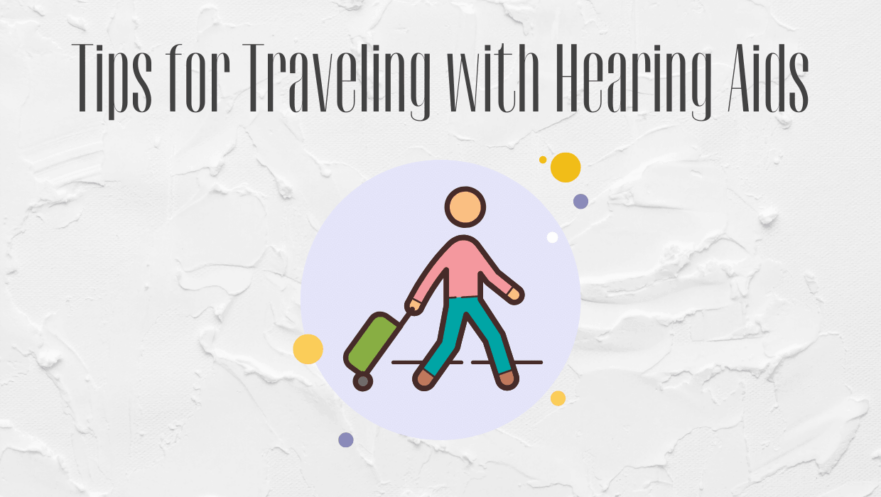Traveling can already be overwhelming without having to consider additional things you may need. Packing, coordinating transportation, accommodations, and navigating busy airports can be stressful. Traveling with hearing aids does not have to add to the sometimes-unpleasant aspects of the travel experience. Taking the time to think about and prepare for your travel can prevent possibly harmful situations and protect your hearing health. It is important to be aware of the risks and best ways to mitigate them.
Travel Risks on Hearing Health
Traveling with impaired hearing requires taking extra precautions to prevent any further damage to your ears, hearing aids, and to care for your sense of hearing. There are a few risks to be mindful so that you can be prepared to navigate and handle what could be challenging.
- Airplane Noise: airplanes are noisy and depending on the duration of your flight, you could be enduring this noise for a long period of time. Also, varying altitude and pressure levels while flying can cause tinnitus which refers to the ringing noise in one or both ears.
- Exposure to Loud Noise: it is important to be aware and mindful of the environments you will be in throughout your travel – tourist attractions, buses, subways, trains, group tours, museums, concerts etc. are activities with higher levels of noise.
- Swimmers Ear: if you will be near a pool or an ocean and plan on swimming, swimmer’s ear is a potential risk. This is an ear infection that is caused by water that remains in your ear after swimming.
Taking inventory of these circumstances can help you better plan for your travels and be prepared to deal with unexpected situations that may pop up. Preparation is absolutely key to ensuring that you are doing everything possible to protect your hearing.
Tips to Protect Your Hearing
- Pack in Advance: probably the most important, it is critical to set aside enough time in advance to properly pack. It could be useful to make a check-list of the various components of your hearings aids and what is needed to properly maintain them. You want to make sure that you have charged your hearing aids overnight, prepared your accessories, have extra batteries, the appropriate adapters for outlets if traveling internationally and your hearings aids use rechargeable batteries, your cleaning kit etc. Also, having a separate case or bag for your hearing aids and accessories makes accessing what you need convenient.
- Receive Text Alerts: signing up to receive text alerts allows you to stay up to date with your flight status and any changes that you need to be aware of. This avoids any announcements made over the announcement system in a noisy airport which you may miss.
- Let People Know: notifying other people around you of your hearing impairment can be really helpful. Letting the security agents know that you are wearing a hearing device while going through airport screening is suggested. It is important to know that you do not have to remove your hearing aids and that screening devices (x-rays, metal detectors, scanners etc.) do not damage or effect hearing aids. Additionally, letting flight attendants know can better prepare them to notify you of any information or announcements made during the flight.
- Wear Hearing Aids: you should always wear your hearings aids through the airport and throughout the flight. The use of hearing aids during flights is not restricted the way other electronic devices are. So, you can and should wear them during take-off and landing. Make sure to use any noise cancellation features you have to protect your hearing from airplane and cabin noise.
- Protect Ears While Swimming: if swimming plans are part of your travels, make sure you remove your hearing aids. You should use earplugs while you swim and thoroughly dry your ears after. Do not immediately place your hearing aids back in your ears, allow some time for your ears to dry.
Protecting your hearing health while traveling requires extra consideration but traveling with impaired hearing does not have to be complicated and stressful. By taking a few measures and thoroughly preparing your hearing aids, you can be ready to effectively navigate any environment!

